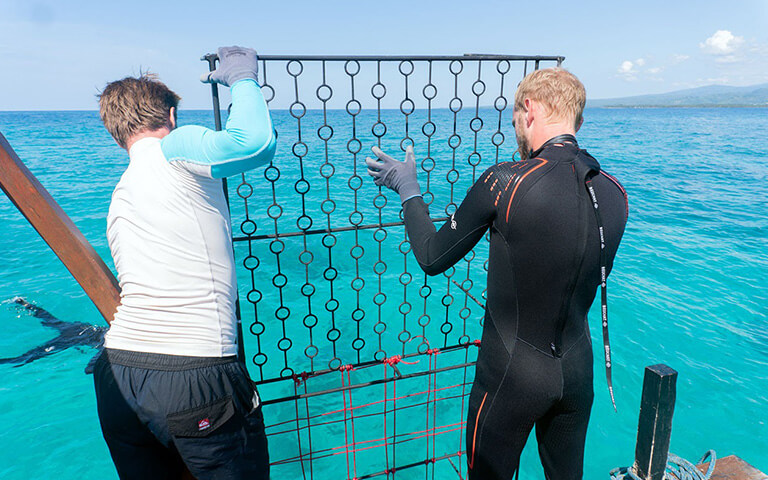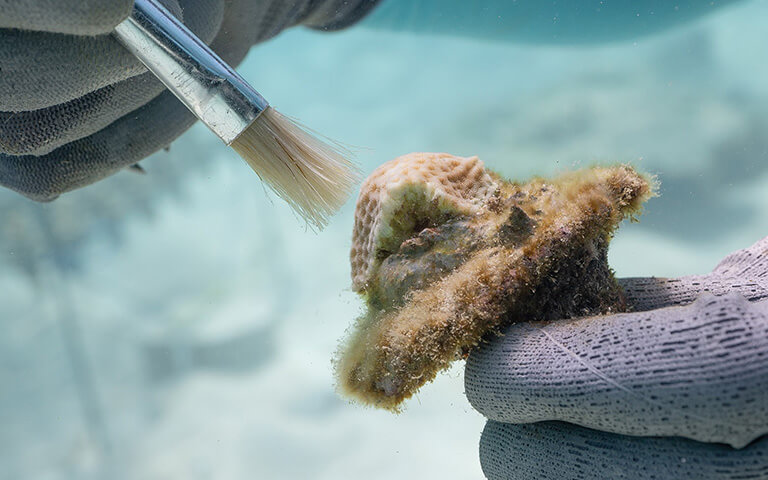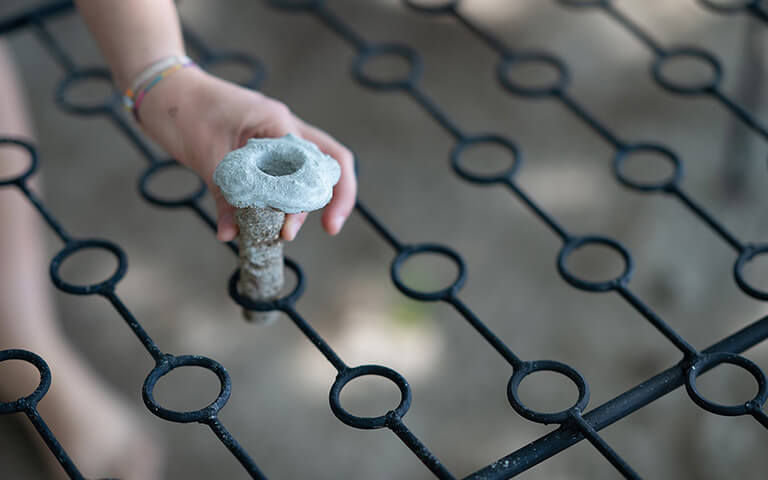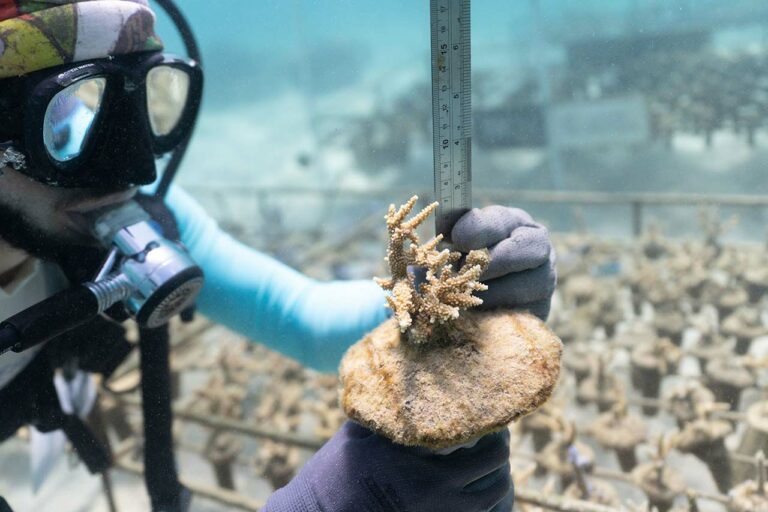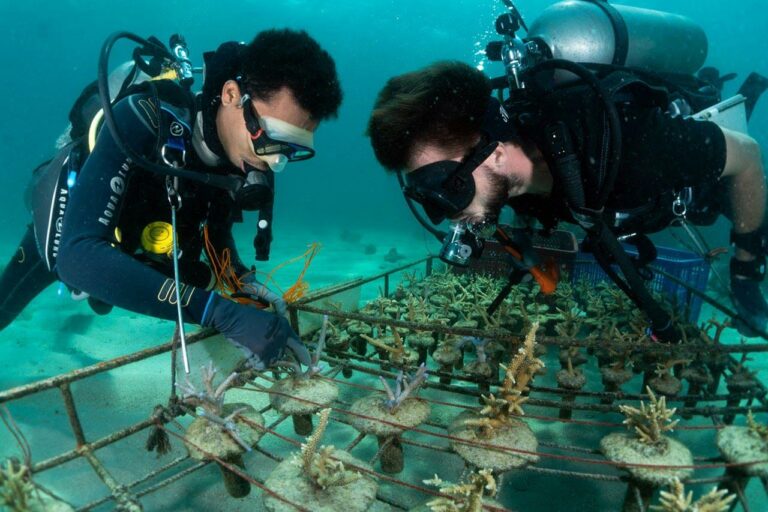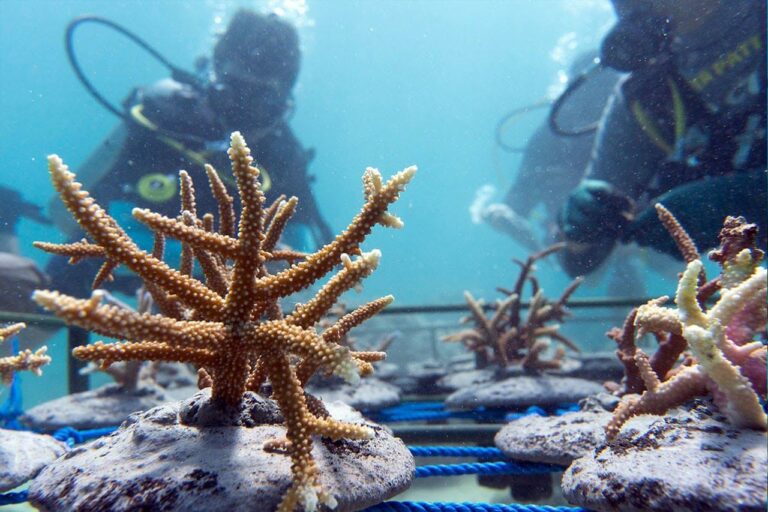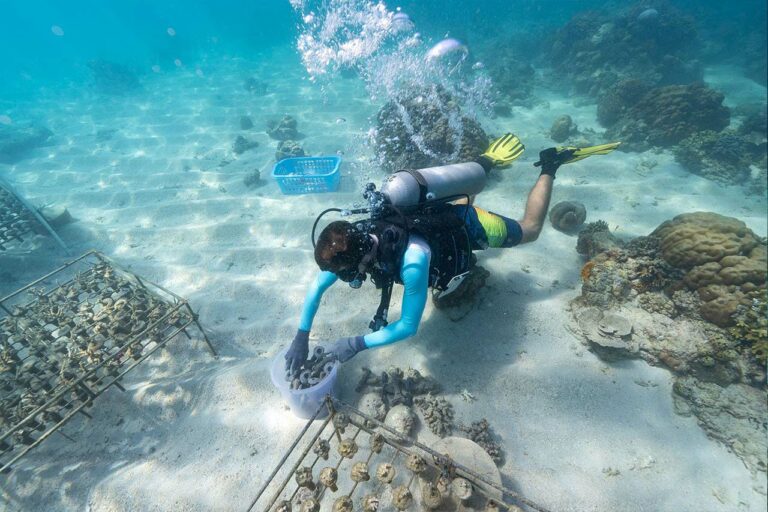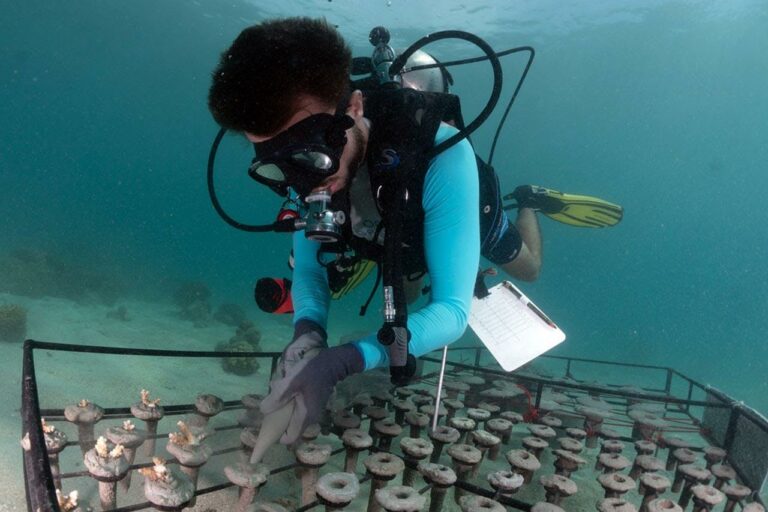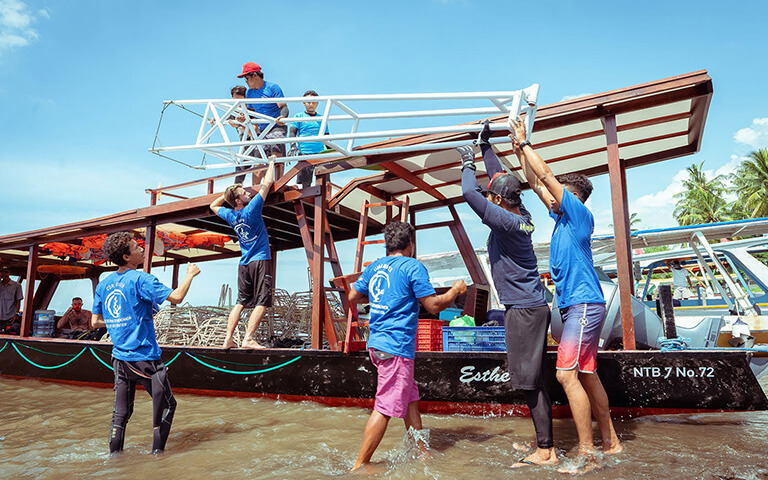Coral Farming
Why Coral Farming Matters
Coral reefs are essential to marine biodiversity, coastal protection, and local livelihoods, but they’re under increasing threat from climate change, pollution, and unsustainable tourism. Our coral farming efforts help:
- Rebuild reef structure and biodiversity
- Support fish populations and marine life
- Strengthen coastal resilience
- Engage and educate local communities
- Promote sustainable tourism in the Gili Islands and North Lombok
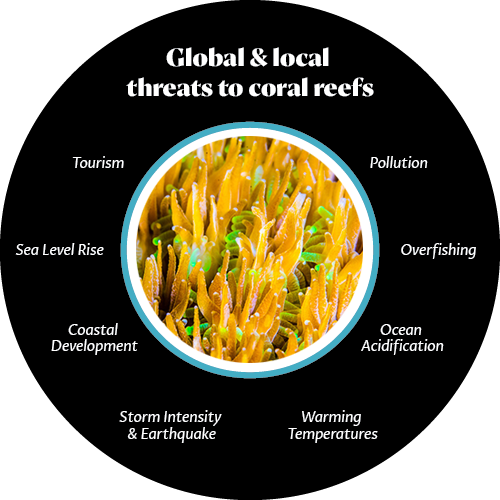
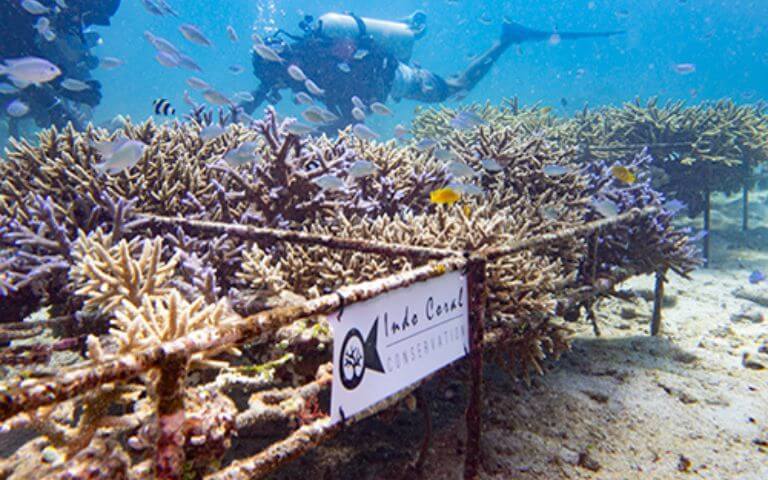
Our Impact and Goals
Since launching the farm in 2019, we’ve successfully grown and replanted around 600 mature corals onto degraded reef areas. Over the next few years, we aim to double our impact, expanding the farm and increasing our output to 1,200 adult corals annually. This growth will allow us to restore larger reef sections and strengthen ecosystem resilience across the region.
Our Method
Sustainable coral farming is the practice of farming using principles of ecology; the study of relationships between organisms and their environment. It’s all about farming the right species in the right environment.
Our coral nursery uses specially designed tables where one side holds a mother colony and the other side hosts coral babies; we micro-fragment the mother colony to create new babies, grow them until they’re ready, then transplant them onto the natural reef, repeating the cycle to sustainably and efficiently produce healthy coral.

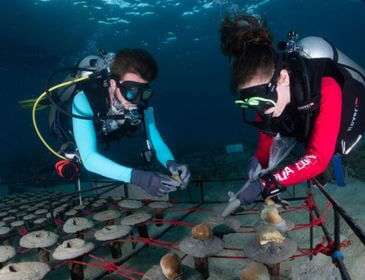
Mother colonies are cut into fragments to grow coral babies.

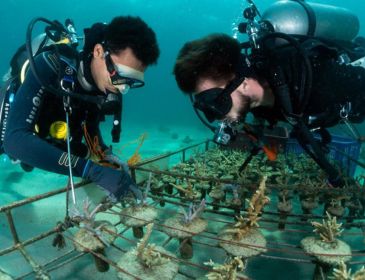
Coral babies are plugged into the table next to the mother colonies.


We track coral health, growth, and survival rates.

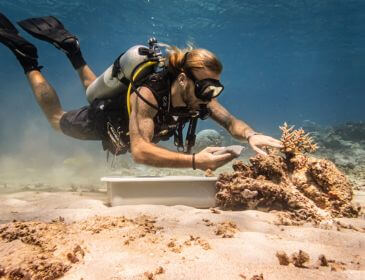
Once mature, corals are transplanted to selected reef restoration sites.
Community Involvement
Our coral farming program is deeply rooted in education and collaboration.
We involve:
- University interns from the University of Mataram in hands-on coral restoration
- Visitors and volunteers through our Discover Coral snorkeling course, where participants plant their own coral fragment and learn about reef ecology
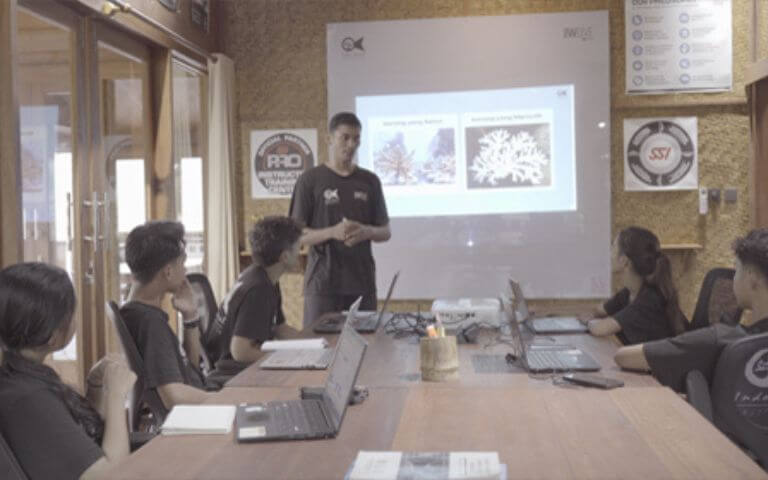
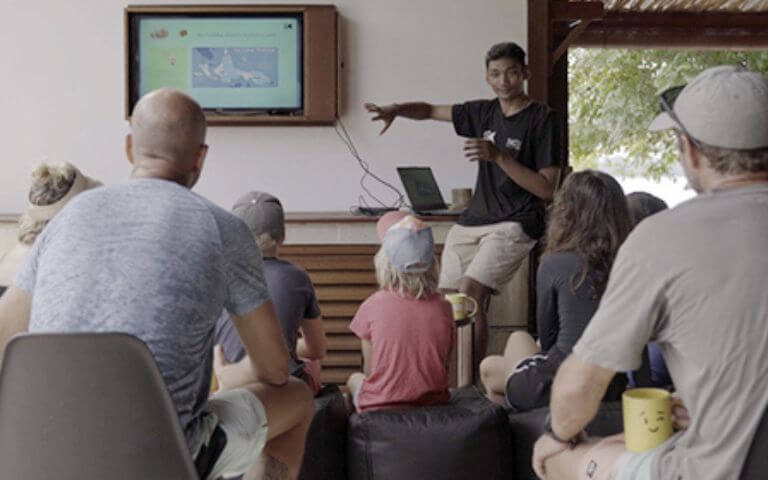
Support Coral Restoration
Every coral we plant is a step toward a healthier ocean.
You can support our work by:
- Joining one of our Coral Courses
- Donating to Indo Coral Conservation
Together, we can help the reef recover, one coral at a time.
Picture Gallery
